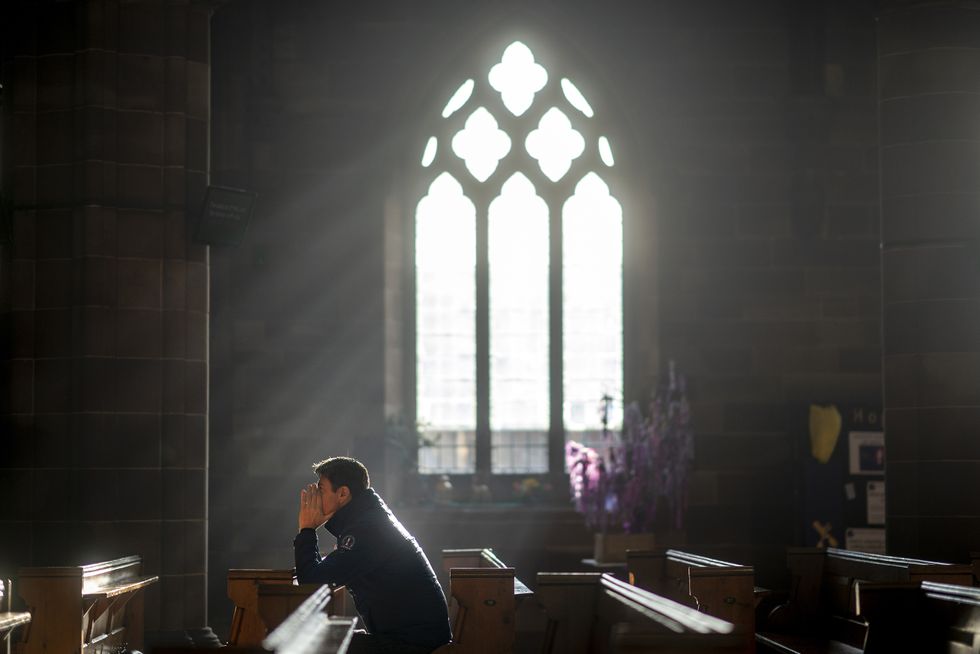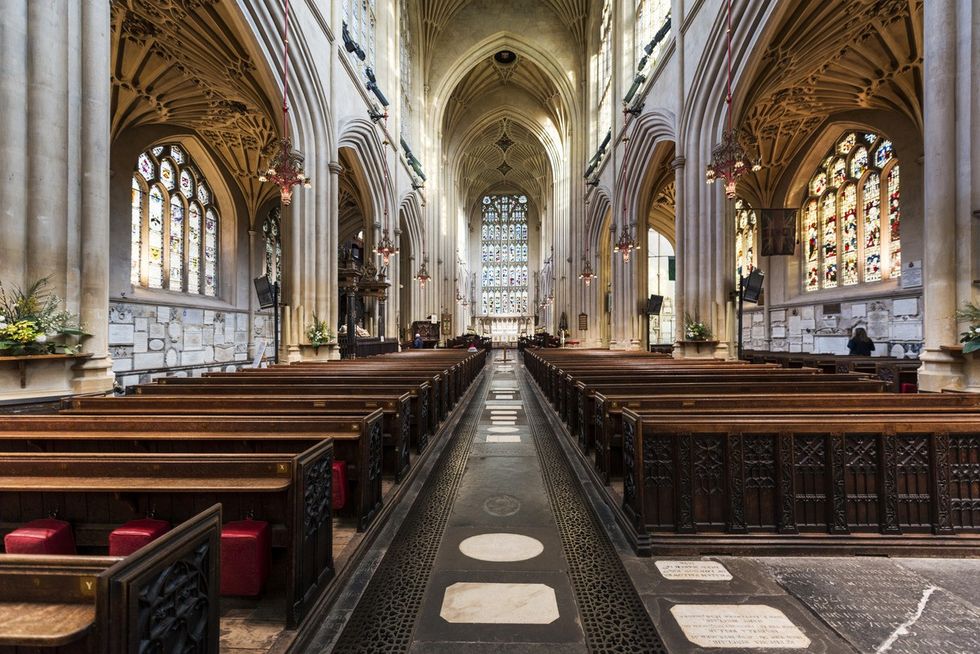Church of England set for woke rebrand as it suggests dropping word ‘church’ to be more ‘modern’
GETTY
Lambeth Palace is hoping to modernise its language when creating new worshipping communities
Don't Miss
Most Read
Trending on GB News
The Church of England looks set to undergo a woke rebrand yet again by dropping the word “church” in favour of “relevant and modern-sounding” descriptions such as “community”, a new study has suggested.
Lambeth Palace appears to be avoiding the traditional word when discussing the creation of new worshipping communities and congregations.
The Centre for Church Planting Theology and Research looked at the language used by 11 dioceses to describe new churches.
It claimed 900 new churches set up by the dioceses in the past decade all opted against using the phrase “church plant” as its primary description.
 Church of England set for woke rebrand as it suggests dropping word ‘church’ to be more ‘modern’GETTY
Church of England set for woke rebrand as it suggests dropping word ‘church’ to be more ‘modern’GETTYReverend Dr Will Foulger, who authored the report, found that six of the 11 dioceses used the language of “worship”, two used “congregation” and seven used “community”.
However, Dr Giles Fraser, vicar at St Anne’s in Kew, told The Telegraph that this apparent reluctance to use the word “church” reflects “a misplaced desire to be relevant and modern-sounding”.
Writing for UnHerd, Dr Fraser added: “The Church has given up on church. Not since Prince became Squiggle has there been such a daft revision.”
A spokesman for the Church of England claimed one reason why the word “church” appears less often in the description of “new worshipping communities” is that these forms of worship can exist outside of traditional brick-and-mortar churches.
LATEST DEVELOPMENTS:There are a growing number of new communities cropping up across the UK.
A “shh free” mass service is now on offer to welcome families at St Barnabas in Ealing.
Silent disco worship is also available at All Hallows Bow in East London.
The new congregation was founded with an existing church in a bid to attract young adults.
The Diocese of Worcester embraced outdoor worshipping in Teme Valley South.

There are a growing number of new communities cropping up across the UK
GETTY
The service includes countryside walks, stopping for Bible reading and prayer along the way.
“These communities often meet in existing church buildings, attracting additional worshippers alongside traditional congregations, but they are as much ‘church’ as any other form of worship,” a Church of England spokesman said.
However, Dr Foulger acknowledged that this change in language by the Church is “forcing us to redefine what we think a church is in the Church of England”.
He also stressed that the debate had “left certain parts of the Church – for whom fidelity to ecclesial forms and practices is central – feeling outside of the planting conversation”.








